
January 12, 2021
Dear Friends,
I hope you had an enjoyable holiday season and start to the New Year! I got to spend it quietly with two of my grandsons that stayed up to 1:15 am with grandma (with parental permission, of course!).
Yesterday, the Washington State Legislature officially convened. While the Capitol this year will look a bit different due the pandemic, our state lawmakers will consider a number of important policy matters including a new two-year budget and the ongoing COVID-19 response.
One of the important issues that needs to be handled this session is changing the way our regional road system is funded. This broadcast gives you LOTS of background info on the topic!
Many of our rural roads are simply not in good repair due to the state formula that underfunds rural roads. This is a complicated subject but begins with the Growth Management Act and a financing formula which was never implemented despite several tries by large bipartisan committees.
This, like much of local government is not partisan nor should it be. The King County Council has sought a fix to the unincorporated area roads funding at the legislature as part of its legislative agenda, which is adopted annually. We have a proud history of unanimously adopting our legislative agenda.
Now is the time to take advantage of historically low interest rates and make significant improvements in our infrastructure. Not only will this create jobs, but it will provide a much-needed boost to our local economy. But we need the state to act in order to make the biggest impact!
King County is responsible for 1,500 miles of roads and 182 bridges within the unincorporated areas of the county. These assets are crucial in keeping the region moving.
Just to manage the existing infrastructure adequately, the King County Road Services Division needs approximately $350 million each year.
Due to regulations set at the state level, the Roads Services Division receives only $100 million annually. That is barely more than a quarter of the funding they need. It is hardly enough funding to handle immediate safety issues, increasing clean water requirements, and the bare minimum of road maintenance and preservation.
We are talking about a funding shortfall between $250 and $400 million each and every year.
King County has tried to come up with ways to address this shortfall on its own. If the county roads levy rate were to increase to the maximum allowed by state law, it would add between $20 and $28 million each year. While this would help a little, it would generate a small addition toward the total need.
Current state law only allows for unincorporated roads funding to come from the unincorporated area, even though residents of cities all over King County (and other neighboring counties) rely on these roads to get where they need to go. In fact, half of the trips on high volume county roads come from cities or other counties, but rural unincorporated area residents are the only ones required to pay the bill.
The issue is further complicated by annexations. Each time an annexation occurs, there are even fewer people paying a larger tax bill to support the same amount of roads. Past annexations have allowed some cities to take the tax generating areas, like business centers, but leave the road infrastructure.
Annexations also occasionally create “orphan roads.” Orphan roads are roads, or road segments that the county is responsible for maintaining but are entirely surrounded by cities. Maintaining these road segments is extremely inefficient. They required road maintenance staff to go from city-to-city across the county to work on small segments of road far away from other county roads.
The county successfully advocated lawmakers in Olympia to make it easier to transfer these “orphan roads” to cities. Thank you Senator Mullet for SSB 6314! Since then, the county has taken action to transfer some orphan roads to cities. However, transferring orphan roads will not significantly close the funding gap.
Without action from state lawmakers, we will simply never be able to solve this problem. If the state keeps kicking the can down the road, we will never be able to catch up; the longer we have to wait for a solution, the larger the funding gap becomes, and the more expensive it will be to solve.
By state law, unincorporated areas do not have the funding tools that cities have but the county is required to provide ALL the same services with less funding sources and fewer people to pay into those funds. The county now has about 13% of it unincorporated and the long-range state plan is for that to be reduced to 6%. So the outlook is not good without state action.
Meanwhile, the county has reduced work force, consolidated the office space, taken advantage of limited flexible revenue sources, and increased efficiencies in order to stretch every dollar we have.
By the state failing to take appropriate action on this issue, our state government is preventing King County from doing what we need to do to keep ALL our roads functioning and safe.
As we go into this session, I will keep you informed on many topics the county is working on for you. So I am asking you to join me in calling on our state legislators on upcoming topics as well as to step up and create a regional solution to the roads funding crisis.
Here is the contact information for legislators in Council District 3 for your future reference:
5th Legislative District
o Senator Mark Mullet: (360) 786 – 7608; mark.mullet@leg.wa.gov
o Representative Bill Ramos: (360) 786 – 7852; bill.ramos@leg.wa.gov
o Representative Lisa Callan: (360) 786 – 7876; lisa.callan@leg.wa.gov
39th Legislative District
o Senator Keith Wagoner: (360) 786 – 7676; keith.wagoner@leg.wa.gov
o Representative Carolyn Eslick: (360) 786 – 7816; carolyn.eslick@leg.wa.gov
o Representative Robert Sutherland: (360) 786 – 7967; Robert.sutherland@leg.wa.gov
41st Legislative District
o Senator Lisa Wellman: (360) 786 – 7641; lisa.wellman@leg.wa.gov
o Representative Tana Senn: (360) 786 – 7894; tana.senn@leg.wa.gov
o Representative My-Linh Thai: (360) 786 – 7926; my-linh.thai@leg.wa.gov
45th Legislative District
o Senator Manka Dhingra: (360) 786 – 7672; manka.dhingra@leg.wa.gov
o Representative Roger Goodman: (360) 786 – 7878; roger.goodman@leg.wa.gov
o Representative Larry Springer: (360) 786 – 7822; larry.springer@leg.wa.gov
48th Legislative District
o Senator Patty Kuderer: (360) 786 – 7694; patty.kuderer@leg.wa.gov
o Representative Vandana Slatter: (360) 786 – 7936; vandana.slatter@leg.wa.gov
o Representative Amy Walen: (360) 786 – 7848; amy.walen@leg.wa.gov
Not sure what Legislative District you are in? Click here to find out.
To learn more the King County Road Services Division’s strategic plan, click here.
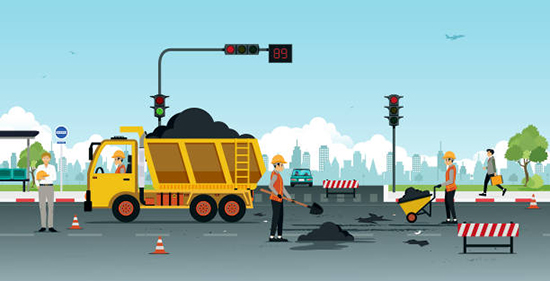
Now for an update on the COVID-19 vaccine, information on open youth sports grants, an update from the King County Department of Local Services, and more.
As always, thank you so much for everything that you are continuing to do limit the spread of COVID-19 in our region. Thank you to all the residents who have reached out and offered their time, resources, and property for the COVID response! I pass all of these offers on to the Executive and Public Health for their consideration. These notes are a constant reminder of how wonderful the people of District 3 are!
Stay Healthy!
Kathy Lambert
In this Issue:
1. COVID-19 vaccine update
2. SR 203 update
3. King County Council reorganization
4. Circle River Ranch Flood Risk Reduction Project virtual open house
5. Youth and Amateur Sports Grants
6. An update from the Department of Local Services
 Last week, Washington state released their planned timeline for distributing the COVID-19 vaccine through April.
Last week, Washington state released their planned timeline for distributing the COVID-19 vaccine through April.
The plan prioritized adults older than 70, those who are older than 50 and living in multi-generational households, critical workers in congregate settings older than 50 and high-risk, those with underlying conditions, and more. To view the updated plan, click here.
The Washington State Department of Health has also announced a tool called Phase Finder, “that allows people to assess their eligibility for the COVID-19 vaccine. It’s being tested now and will launch broadly January 18. Phase Finder will be available in multiple languages and will be used to confirm individual eligibility for the COVID-19 vaccine. Vaccine providers and immunization programs will also be able to use Phase Finder to do assessments of vaccine need by zip code.” For more information, click here.
To learn more about the COVID-19 vaccine in King County, including statistics on how many doses have been distributed, click here.
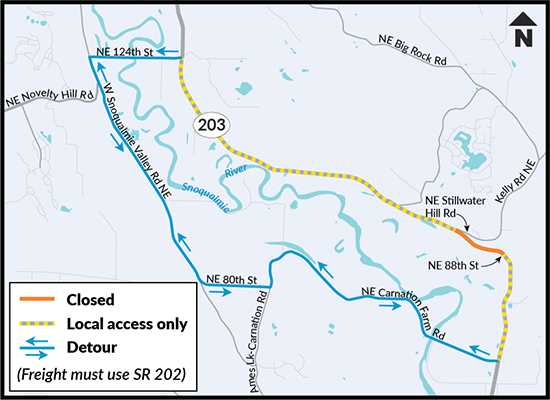
HINT: Slow down! Starting January 8th, drivers may notice an increase in speed enforcement along the State Route 203 detour. If using the detour, please be sure to follow the 25-mph speed limit on NE 80th Street.
Increased speed enforcement will remain in place until WSDOT crews finish their work and reopen all lanes of SR 203. As long as the weather forecast holds, all lanes are expected to reopen by Monday, Jan. 25.
3. King County Council reorganization
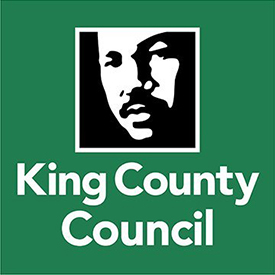 Last week, at our first King County Council meeting of the year, we approved the reorganization of council committees.
Last week, at our first King County Council meeting of the year, we approved the reorganization of council committees.
I am excited to announce that I will continue to serve as the chair of the Community, Health and Housing Services Committee, which focuses on providing critical services to those in need.
I will also continue serving as chair of the Regional Water Quality Committee and will be vice chair of both the Law and Justice Committee and the Local Services Committee. In addition, I will be a member of the following committees: the Committee of the Whole, the Budget and Fiscal Management Committee, and the Mobility and Environment Committee. I will also continue on four State Committees and one National Committee!
This meeting was a great way to kick off the year, and I look forward to the work that will be done throughout 2021 as we continue to respond to COVID-19, work to distribute the vaccine, address the need for more housing, and so much more.
4. Circle River Ranch Flood Risk Reduction Project virtual open house
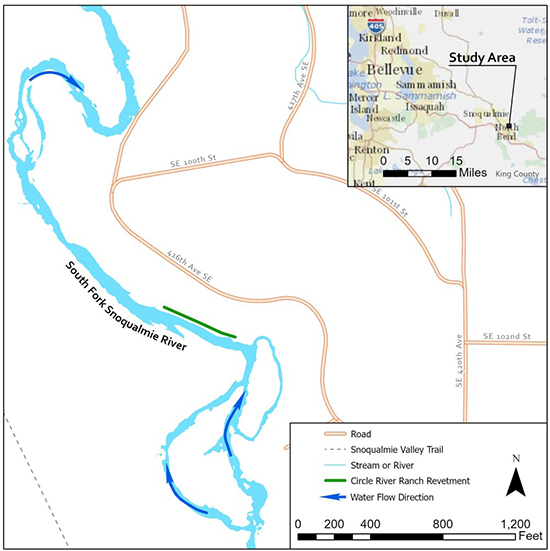
The Circle River Ranch Flood Risk Reduction Project is an important piece of the strategy to reduce flood and erosion risks along the South Fork Snoqualmie River.
This particular project has the goals of reducing risks from flood and channel migration hazards, reducing the long-term costs of flood hazard management, improving the natural environment through sustainable management practices, and incorporating stakeholder and community values into the planning process.
The King County Flood Control District has put together a virtual open house for the project, which is open now through February 1st.
To learn more about this important flood reduction project and provide feedback, click here.
You can also email your feedback to Gus Kays, the Project Manager, at Gkays@kingcounty.gov.
5. Youth and Amateur Sports Grants
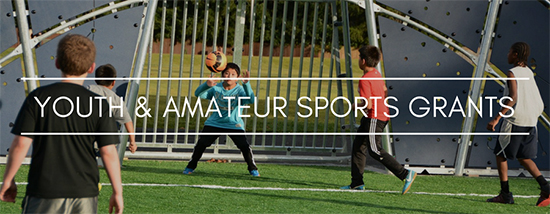
The application for the 2021 King County Youth and Amateur Sports Grants is now open! These grants support fit and healthy communities by investing in programs and capital projects that increase access to physical activity.
Applications are due by noon on Wednesday, January 27.
To learn more about the grant opportunity and view the application, click here.
6. An update from the Department of Local Services
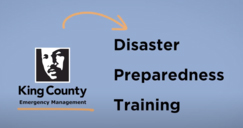 The King County Department of Local Services has been serving the residents of unincorporated King County for two full years now. Here is some helpful information from their recent email newsletter:
The King County Department of Local Services has been serving the residents of unincorporated King County for two full years now. Here is some helpful information from their recent email newsletter:
“King County offers help to get ready for the unexpected
New virtual disaster skills training from Emergency Management
Emergencies like flooding, severe winter weather, and earthquakes don’t take a break just because there’s a pandemic. King County Emergency Management now offers virtual disaster skills training to help you prepare.
For short, quick sessions on what to consider when preparing for the unexpected, check out their ‘Disaster Danny’ series:
• Part 1: https://youtu.be/aw0jS-4DwMY
• Part 2: https://youtu.be/mVCz7Tfae2A
• Part 3: https://youtu.be/HJxwsODXP10
• Part 4: https://youtu.be/eksJBbKd-y0
• Part 5: https://youtu.be/7u59kLtWkWw
More details on the information presented by Disaster Danny is available in the Disaster Skills Training – Virtual Edition video series, which provides an overview of local hazards and the skills needed after a disaster. Topics include safely managing your water heater and natural gas, water storage/purification, emergency sanitation, creating family emergency plans, and ways to make it through events that might disrupt your normal daily routine.
• Full program: https://youtu.be/9J2f2mGcWhg
• Module 01: https://youtu.be/3bZZ1-4TtFY
• Module 02: https://youtu.be/PB9XtCk7q5Q
• Module 03: https://youtu.be/b2QW5RSVBLA
• Module 04: https://youtu.be/kq72q45d5mw
• Module 05: https://youtu.be/MLFsd2v2EmU
To request a virtual LIVE skills training for your community, email the Office of Emergency Management.
Stay safe by staying informed.
Alert King County sends notices to subscribers about hazards or threats in their area.
King County flood alerts sends alerts about the most common hazard in King County.
Conservation funding available—apply by March 2

King County is seeking applications for funding from the King County Conservation Futures tax levy. Applications are due on Tuesday, March 2.
• These grants can be used to buy parks and open spaces used for low-impact passive recreation, such as urban green spaces, natural areas, forests, community gardens, farms, and trails.
• The grants can be awarded to cities, the county, park districts, and eligible nonprofit nature conservancies and historic preservation associations.
• Typically a dollar-for-dollar match is required, but acquisitions in historically underserved opportunity areas may qualify for a match waiver (meaning the grant can pay 100% of the acquisition cost).
Visit the application webpage for application, schedule, policy guidance, and contact information.
Northeast Recycling and Transfer Station Project

King County's Solid Waste Division has started a process to site a new recycling and transfer station in northeast King County. This new facility will replace the aging Houghton Transfer Station in Kirkland (pictured above), which has been in service nearly 60 years.
The new station will serve the growing communities of Kirkland, Redmond, Woodinville, and Sammamish, as well as the unincorporated Northeast King County community service area. Learn more, request a presentation, or sign up for project updates at kingcounty.gov/northeast.”
As you can tell, the year starts off with a huge agenda (as they all do), so it is a pleasure to serve you as we work on all these issues and more!
Road issues and financing are complicated and we have had several studies and outside evaluations, but for an overview of a great way to learn more about the King County Road Services Division’s strategic plan, click here. Happy reading! (Now you know why I stay up late at night...)
Happy New Year.
 |
Email: kathy.lambert@kingcounty.gov |